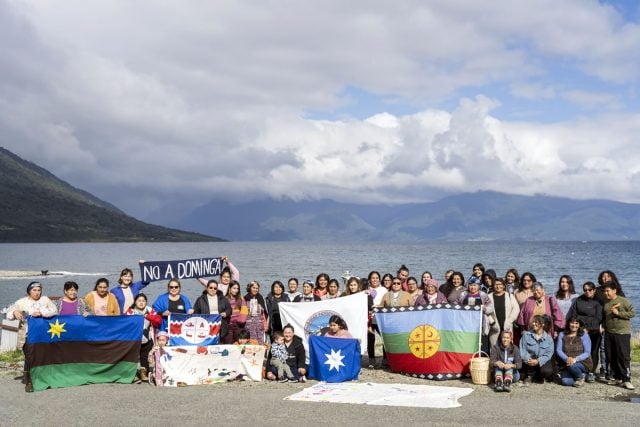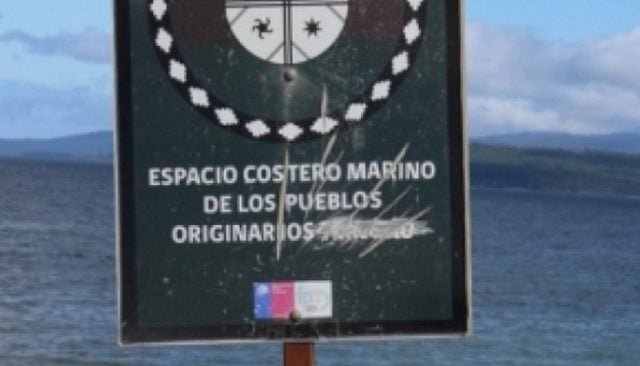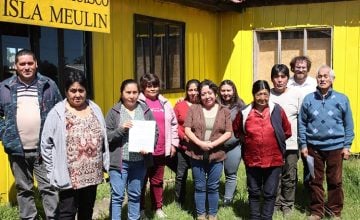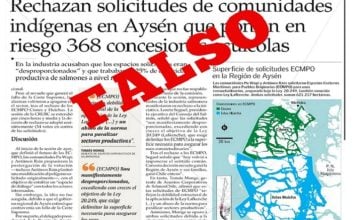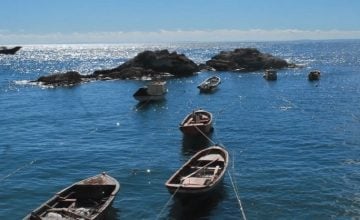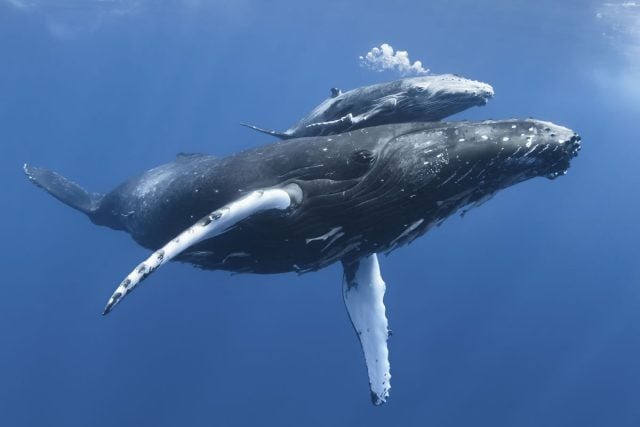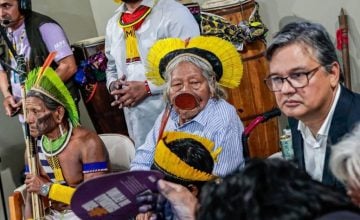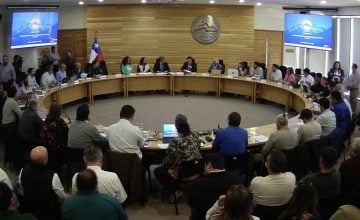Original article: Chile: Mujeres de pueblos originarios del mar participan en la COP30 en Brasil
The Network of Indigenous Women for the Defense of the Sea (RDM) is participating in COP30 from eleven territories, striving to highlight and demand action with a gender perspective, ancestral knowledge, and effective protection of coastal and island territories.
For the RDM, the priority lies in integrating the ocean into national plans, safeguarding coastal marine ecosystems, enabling direct funding for community initiatives, and ensuring meaningful participation based on free, prior, and informed consent.
The delegation is made up of representatives from six territories, including Delia Núñez Véliz (Diaguita people), Yasna Marín Álvarez (Chango people), Myriam Yefi Jaramillo (Mapuche Williche people), Yohana Coñuecar Llancapani (Mapuche Williche people), Ingrid Echeverría Huequelef (Mapuche Williche people), and Haydée Águila Caro (Kawésqar people). The network also amplifies the voice of the Yagán people from the southernmost part of the continent.
This group of indigenous women arrives in Belém following a workday in Piedra Alta–Budi with the delegation of the Sustainable and Sustainable Territories Observatory (OTSS) from Brazil, which traveled to share experiences and learn from Law 20,249 with a view to adapting them in their territories.
During the meeting, priorities were defined for influence and coordination to participate and lead discussions at the Peoples’ Summit. The goal is clear: to place the ocean, life, and coastal communities at the center of the summit’s environmental agenda.
The message from the delegation is explicit: to advance climate adaptation and mitigation by integrating a gender perspective, particularly in marine issues; to secure funding with direct access and verifiable accountability for coastal indigenous peoples; to effectively recognize customary use of the sea and mechanisms such as ECMPO; and to strengthen the protection of coastal marine ecosystems through community management and control of industrial pressures and pollution.
These issues will be present in bilateral meetings and public activities during the thematic days of oceans and biodiversity on November 17 and 18, and during the sessions on food systems, fishing, women, and gender on November 19 and 20.
“The RDM carries the voices of women from island and coastal territories who are particularly vulnerable to climate change and often excluded from decisions. Our focus is to ensure their rights and realities are at the forefront of climate policy,” stated Ingrid Echeverría Huequelef, coordinator of the Network.
“As a network, besides observing, we will contribute from community experience so that the gender perspective enhances the quality and justice of policies,” she added.

The context of the summit emphasizes urgency. By 2025, countries must submit new NDCs (Nationally Determined Contributions), which are climate plans with emission reduction targets and adaptation measures.
In Belém, financing targets and a roadmap for energy transition are also being discussed: how much new and predictable funding will be allocated for implementing actions, and how economies will be decarbonized by replacing fossil fuels with clean energy under social justice criteria.
In the marine sector, both the official agenda and that of non-state actors prioritize sustainable ocean management and ecosystem-based solutions for coastal ecosystems, such as restoring wetlands, marshes, and mangrove forests or macroalgae that capture carbon and mitigate storm surges.
Initiatives like integrating the ocean into the NDCs encourage countries to include marine measures in their plans; and the BBNJ process—treaty for high seas biodiversity—advances rules for marine protected areas and regulation of activities in international waters, in which Chile is proposing to host the secretariat in Valparaíso.
Haydeé Águila Caro, coordinator of the RDM, emphasizes that “all oceanic measures must respect human rights, avoid the commodification of the sea, and recognize the governance of indigenous peoples and artisanal fishing, because without binding participation on the coast, policies lose effectiveness in the territory.”
“We hope this experience strengthens our work in the territories and in the spaces where the network operates. We seek agreements that allow us to act collectively, with a common perspective and horizon,” Águila adds, who will also participate in COP activities in Belém.
For her part, Yasna Marín Álvarez, coordinator, expressed hope that COP30 will be a space where “the voice of coastal indigenous peoples is finally heard and our ancestral knowledge about the sea, territory, and relationship with nature is recognized, not just as testimony, but as guidance for addressing the climate crisis.”
The representative added that states must take clear responsibilities to protect territories and ensure the effective participation of indigenous communities in climate decisions.
The delegation will participate in panels and meetings at the Peoples’ Summit, hold meetings with official delegations and climate financing actors, and disseminate informational materials for media and organizations. The goal is to ensure climate policy incorporates knowledge and practices related to the sea, and that resources reach those implementing measures from coastal territories.
